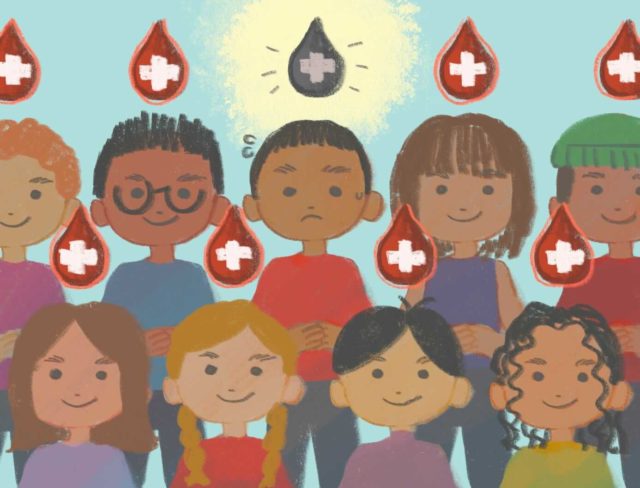Health experts and LGBTQ+ advocates are raising questions regarding the legitimacy of the deferral period for LGBTQ+ individuals who wish to donate blood.
Men who have sex with men, or MSM, are currently required to abstain from sexual activity for three months before being eligible to donate blood, as mandated by the Food and Drug Administration. The FDA shortened the deferral period from 12 to three months in April 2020 in response to the blood shortage resulting from the ongoing COVID-19 pandemic.
Restrictions against MSM blood donors exist from concerns over HIV entering the available blood supply, according to the FDA. However, advocates such as the Human Rights Campaign – the largest LGBTQ+ lobbying organization in the U.S. – view this as a continuation of anti-LGBTQ+ stigma and are consequently calling for changes to the current policy.
In 1983, the FDA declared that MSM would receive a lifetime ban from donating blood following the emergence of the AIDS epidemic in the 1980s. In 2015, this was reduced to a required 12-month abstinence from sex.
“These outdated policies stem from the early days of the HIV epidemic when really not much was known about the virus and how it was transmitted,” said Ian Holloway, a professor of social welfare at the UCLA Luskin School of Public Affairs and director of the Southern California HIV/AIDS Policy Research Center.
Holloway also said the current three-month deferral period is based on arbitrary stigma and is not in accordance with the most up-to-date science on HIV detection.
The testing process can accurately detect viruses in the blood – including HIV, hepatitis B and hepatitis C – in as little as 10 days, Holloway said.
Legislators have echoed demands from advocates and are pushing the FDA to reevaluate the credibility of the three-month abstinence period.
Dr. Dawn Ward, the medical director of the UCLA Blood and Platelet Center, said support for the reduction of the period is coming from federal members of Congress along with medical associations such as the American Medical Association.
On Jan. 26, the American Medical Association called for the end to discriminatory bans on MSM donors in response to the Red Cross announcing a national crisis.
“We are in a shortage right now. (The blood supply is) probably the lowest it’s been in a decade, and it’s likely due to the COVID-19 pandemic,” Ward said.
Holloway added that hospitals affiliated with the University of California medical system are facing the shortage firsthand. The trauma center at Harbor-UCLA Medical Center was forced to close to new patients for hours on Jan. 10 and had to ask for blood from another hospital.
Reduced deferral periods in other countries add pressure on the FDA to alter these donor restrictions.
In the United Kingdom, MSM can now donate blood based on their sexual behaviors and if they have been monogamous for three months prior to donation, according to the National Health Service.
Olivier Véran, France’s Minister of Solidarity and Health, announced France’s plans to eliminate donor restrictions based on sexual orientation in March.
Tom King, a campus blood donor recruiter for the UCLA Blood and Platelet Center, described the difficulty of turning away people who wish to donate blood.
“What I’ve seen sometimes is that people will come in and they think that deferrals have been lifted … because they read maybe about other countries … and it’s really disheartening,” King said.
U.S. regulators may soon shift policies to prioritize individual risk factors over sexual orientation. Ward said the new Assessing Donor Variability And New Concepts in Eligibility study will provide the proper evidence to evaluate how the three-month deferral period should be altered.
The ADVANCE study seeks to find an alternative to the three-month period and implement a more robust questionnaire that evaluates donor variability.
President’s Joe Biden administration recently acknowledged the potential stigmas of current FDA policy and is hopeful the ADVANCE study will shed light on the next course of action.
Ward said the increased attention toward the donor restrictions gives hope that the proper steps will be taken to reassess the validity of the current deferral period.
“I’m really hopeful that (the ADVANCE study) will provide the data that’s required to make these changes,” Ward said.

